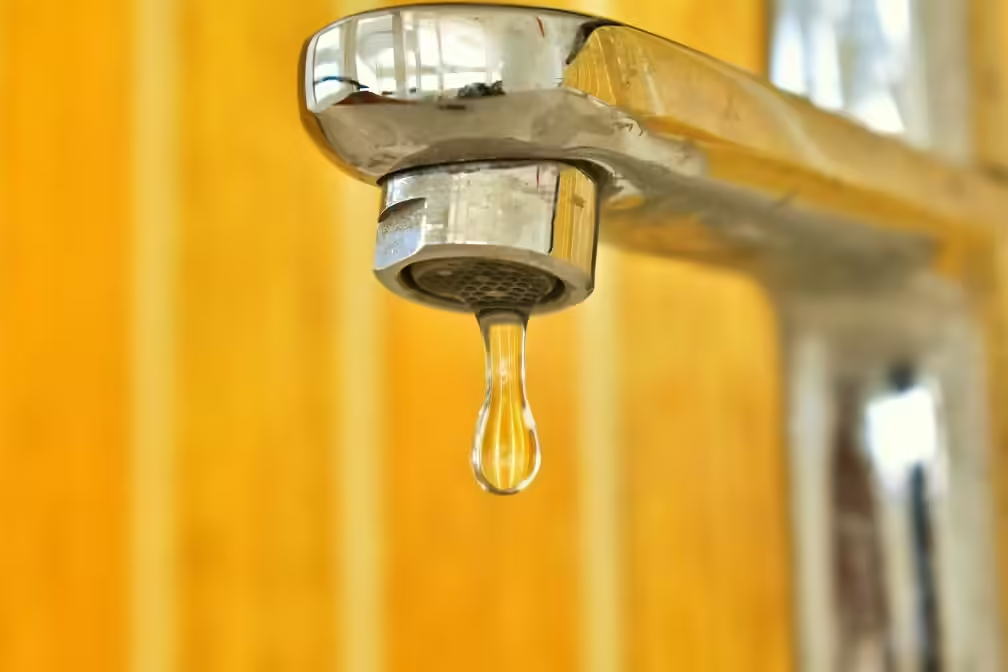Can you water plants with tap water? This is a question many plant enthusiasts ask when figuring out how to keep their plants thriving.
While tap water is convenient, it often contains chemicals like chlorine and fluoride that could affect your plants’ health. But don’t worry! With the right approach, tap water can be used safely for your indoor jungle.
In this guide, we’ll break down the effects of tap water on plants, how to make it safer, and explore the best alternatives to ensure your plants stay lush and vibrant.
Can You Water Plants with Tap Water?
The question many plant lovers ask is, can you water plants with tap water? Well, it depends. While tap water is easy to access, it contains chemicals like chlorine, fluoride, and even limescale, which can sometimes have a negative effect on your houseplants.
Some plants, like Spider Plants and Peace Lilies, are particularly sensitive to chlorine and fluoride, resulting in brown tips or stunted growth. But don’t panic—there are ways to make tap water friendlier for your indoor plants.
Chlorine, which is added to kill bacteria, and fluoride, which is used to prevent tooth decay in humans, can slowly build up in your plant’s soil. These chemicals can block the plant’s ability to take in water and nutrients efficiently, causing poor growth and browning leaves. And don’t forget about limescale—the white crusty residue that you often see on your taps can also appear in your plant’s pot, especially if you live in an area with hard water.
Making Tap Water Safe for Indoor Plants
If tap water is your only option, don’t worry! There are ways to make tap water safer for your plants:
- One simple trick is to let the water sit for at least 24 hours. During this time, the chlorine will evaporate, making the water much gentler on your plants. Want quicker results? Try leaving the water in a container without a lid, using a water bubbler, or placing it in the sun to speed up the process.
- For those with a bit of extra budget, you might consider investing in a Reverse Osmosis (RO) system. This system removes most of the harmful chemicals from tap water, making it as pure as rainwater.
- Another convenient method is to use aquarium water conditioners. These products are designed to neutralize chlorine, chloramines, and ammonia, making your tap water more suitable for aquatic life—and they work just as well for plants!
What Water Is Best for Plants?
So, what’s the best water for your plants to thrive? Let’s dive into a few great options:
- Aquarium Water: From personal experience, I’ve found that using aquarium water for plants can be a game-changer! If you have an aquarium at home, you already have access to nutrient-rich water that’s perfect for your plants. Aquarium water contains natural fertilizers from fish waste, making it rich in nutrients like nitrogen that plants love. And the best part? It’s free of chlorine and other harmful chemicals. In fact, aquaponic systems are based on this same principle, where plants are grown using water from fish tanks. Whenever I clean my fish tank, instead of dumping the old water down the drain, I use it to water my houseplants. The results have been impressive—my plants are thriving and growing beautifully! Plus, it’s a sustainable and eco-friendly solution that benefits both my fish and my plants.
- Rainwater: Another excellent option is rainwater. Naturally soft and free of chemicals like chlorine or fluoride, it’s highly beneficial for plants. It’s also slightly acidic, which mimics the natural environment most plants prefer. Try collecting rainwater in barrels or containers for later use.
- Well Water: If you have a well, this can be a good source of water for your plants, as it often contains essential minerals. Just ensure it’s not too high in salts or overly hard, as this could affect your plant’s health.
- Bottled Water: While not the most sustainable option, bottled water can be useful if you only have a few plants and want to ensure they’re getting chemical-free hydration. However, it can be expensive and is best used sparingly.
Frequently Asked Questions
How Much Chlorine Can Plants Tolerate ?
Plants can tolerate low levels of chlorine because excessive amounts can be harmful. Most plants are sensitive to chlorine levels greater than 140 mg/L (milligrams per liter). For indoor plants, tap water with chlorine levels between 0.5 and 2.0 mg/L (which is typical of municipal tap water) is generally safe, but sensitive plants may still show signs of stress, such as leaf browning or stunted growth.
Final Thoughts
When it comes to watering your beloved plants, understanding your options is key. While tap water can be used with precautions, exploring alternatives like aquarium water, rainwater, or even bottled water can provide a chemical-free boost to your greenery.
So, can you water plants with tap water? Yes—but it’s always good to know what water is best for plants to help them thrive.
Keep in mind that excessive chlorine and chemicals can hinder growth, so always aim for the healthiest water source to keep your plants thriving. And, will chlorinated water kill plants? In most cases, no—but taking simple steps to remove harmful chemicals can make a world of difference!

